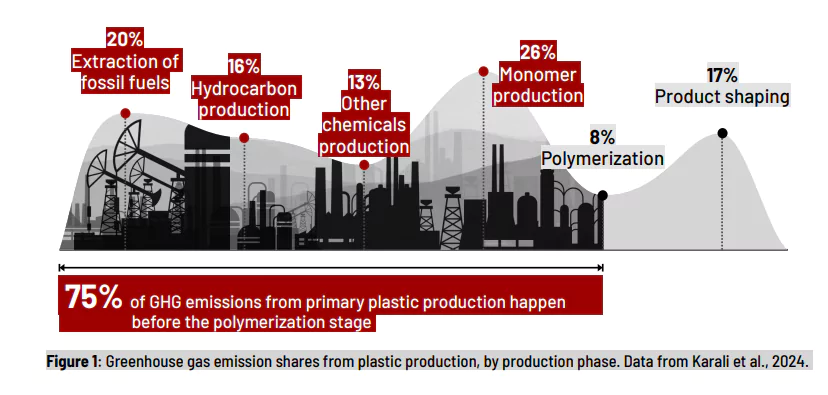Context
Civil society organizations are encouraging the Association of Southeast Asian Nations (ASEAN) to step up and lead efforts in tackling plastic pollution.

The call for action has come ahead of the fourth session of the Intergovernmental Negotiating Committee (INC-4).
Fourth Session (INC-4)
- The INC-4 negotiations are scheduled in Ottawa, Canada.
- The goal of INC-4 is to create a global agreement to tackle plastic pollution, including its impact on oceans.
About The Global Alliance for Incinerator Alternatives (GAIA)
- Global Alliance for Incinerator Alternatives (GAIA) is a global alliance of grassroots organizations, non-governmental organizations (NGOs), and individuals.
Incinerator
- Incineration is a process used to treat waste by burning the substances it contains.
- This process takes place in a special furnace called an “incinerator,”.
- Various types of hazardous materials, such as soil, sludge, liquids, and gases, can be treated through incineration.
Process
- During incineration, waste materials are converted into ash, flue gas, and heat through combustion.
- The ash primarily consists of the inorganic components of the waste and may appear as solid lumps or particles carried by the flue gas.
- Before releasing into the atmosphere, the flue gases must undergo cleaning to remove gaseous and particulate pollutants.
- In some cases, the heat produced during incineration can generate electricity.
|
- Objective: To move away from our current “use and discard” approach to resources towards a circular system where resources are reused.
- This supports people’s right to a safe and healthy environment.
- This alliance works together and understands that our planet’s finite resources, weak biosphere, and the health of people and other living beings are threatened.
- Primary areas of intervention: incineration, zero waste, plastic, and climate.
- This threat arises from practices such as polluting and inefficient production methods and harmful ways of disposing of waste.
Enroll now for UPSC Online Course
Key Challenges in Tackling Plastic Pollution
- Global Plastic Production and Consumption:
- The vast amount of plastic produced and used worldwide has worsened the problem.
 Plastic is deeply integrated into daily life, from packaging to single-use items, making reducing consumption difficult.
Plastic is deeply integrated into daily life, from packaging to single-use items, making reducing consumption difficult.- According to the Lawrence Berkeley National Laboratory (LBNL), if the world doesn’t cut plastic production by 12-17% per year, achieving the Paris Climate goals would not be possible.
- Inadequate Waste Management Infrastructure:
- Many regions lack efficient waste management systems.
- Improper disposal causes plastic waste to accumulate in landfills, waterways, and oceans.
- Therefore, There is a need to develop a robust infrastructure for waste collection, recycling, and disposal is crucial.
- Marine Pollution and Ecological Impact:
- Plastic debris harms marine ecosystems, endangering marine life.
- It also causes animals to ingest or become entangled in plastic, leading to injury, suffocation, and death.
- Microplastics and nanoplastics:
- Tiny plastic particles are known as microplastics and nanoplastics.
- These particles are difficult to detect and remove from permeate water bodies which it poses significant risks to the environment.
Impact of The Global Alliance for Incinerator Alternatives (GAIA) Action to Reduce Pollution
- Raising awareness: GAIA, along with other CSOs, is pressuring ASEAN to take a leadership role in tackling plastic pollution through a global treaty.
- This step can bring significant attention to the issue.
- Shifting policy focus: GAIA advocates for a treaty with legally binding obligations on plastic production and consumption reduction.
- This could lead to stricter regulations and a move away from a throwaway plastic culture.
- Promoting a holistic approach: GAIA emphasizes addressing the entire plastic lifecycle, from design and production to waste management and recycling.
- This pushes for a more comprehensive solution than just focusing on waste disposal.
- Phasing out single-use plastics: GAIA calls for a commitment to phasing out single-use plastics, a major source of pollution, which could significantly reduce plastic waste generation.
- Highlighting environmental injustice: GAIA emphasizes the disproportionate burden of plastic pollution on Southeast Asia and urges action against dumping practices by developed nations.
- This step promotes environmental justice and holds all parties accountable.
Also Read: Global Plastic Pollution Treaty Negotiations At INC-3
![]() 23 Apr 2024
23 Apr 2024

 Plastic is deeply integrated into daily life, from packaging to single-use items, making reducing consumption difficult.
Plastic is deeply integrated into daily life, from packaging to single-use items, making reducing consumption difficult.